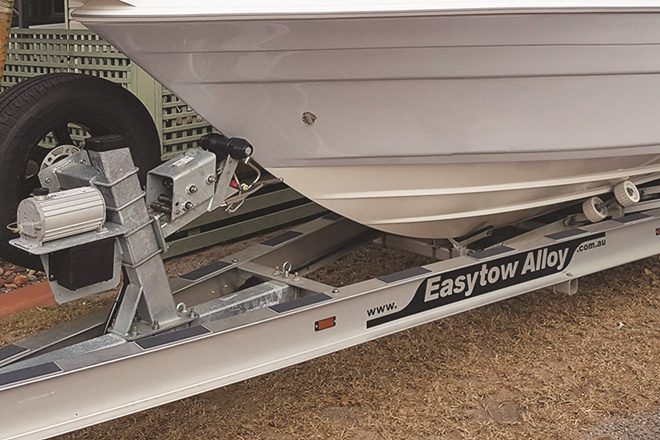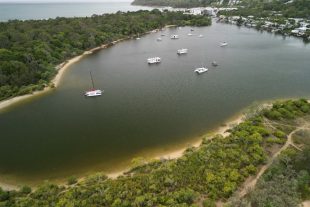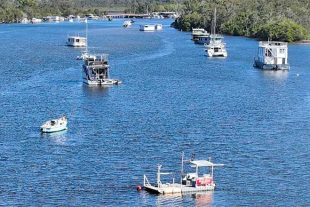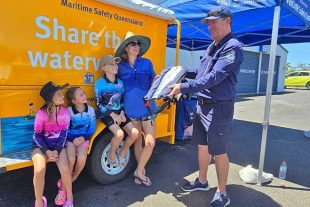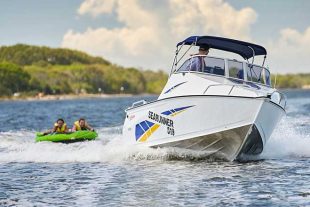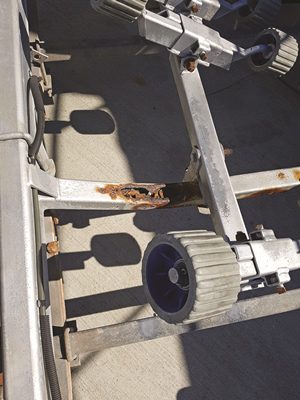 WHEN it comes to marine insurance, ‘now’ is always the right time to be thinking about boat trailers.
WHEN it comes to marine insurance, ‘now’ is always the right time to be thinking about boat trailers.
And that ‘thinking’ should take place at several levels including trailer security and trailer loading capacity as well as the more obvious trailer ‘condition’ in terms of towing compliance and road worthiness.
Unfortunately, trailer theft is not uncommon. You head off with your family for a day’s outing and some criminal decides your trailer is better suited to his or her needs than yours. You can reduce the chance of suffering financial loss and inconvenience by fitting locks to the coupling.
Also fit a locking pin if your towbar has a removeable box-section tongue. If the thief does manage to remove your trailer, marine insurance specialists including Nautilus Marine will take care of the claim.
In doing so, they also will assess where your trailer is at in terms of its condition and potential lifespan. Just as many retailers will often remark that boat owners almost invariably think their vessel is worth more than it actually is, as do many people who own boat trailers. Some marine retailers will suggest a boat trailer immersed in salt water once a month and rinsed off at the end of the day might have a lifespan of seven years.
Coatings designed to slow corrosion, a thorough removal of salt water after each trip and regular maintenance will help maximise the life of a trailer. But once it has been stolen and then determined to be outside a typical ‘two years from new’ window, the amount of money paid out to compensate the owner for the loss of the trailer will be at a depreciated level.
That level is determined as true market value. Not how much you think the trailer is worth and not what the trailer’s replacement cost is, but rather, a fair market value for the trailer having regard to its age and condition at the time of the theft.
A vessel used in fresh water may well last much longer than one only used in salt water and yes, the lifespan of any boat trailer can be extended by replacement and/or repair of parts suffering from corrosion. That’s why it is also important to note on your policy renewal correspondence that you have, for example, recently replaced the disc brakes, callipers, springs and hangers, some of the rollers and lighting. Provide evidence of the parts having been bought and the work done.
That way, your specialist marine insurer will be able to more accurately assess the true value of your trailer at the time of its theft or other mishap. Another important trailer consideration in terms of insurance is to ensure, particularly at holiday times, your boat trailer is not overloaded.
Why particularly at holiday times? Well your trailer has a number of relevant measures including its aggregate trailer mass, which is the combined weight of the trailer and its full load when not coupled to the tow vehicle; the gross trailer mass, which is the maximum weight of the trailer and its load over the axle or axles when connected to the tow vehicle; the trailer ball load, which is the downweight of the trailer on the tow ball on the vehicle; and the trailer’s tare, which is how much the trailer weighs when unladen.
You cannot exceed the maximum weights. At holiday times, this might happen if you use your boat to carry all its regular gear and fuel as well as a tent, marquee or fly, tables, stretchers, camp kitchen, ground tarp, pegs, kitchen utensils and other items.
The combined additional weight of a full fuel load and camping gear might be enough for you to exceed the trailer’s ATM. That could well become a key factor if something goes wrong on the journey to the holiday destination and results in a subsequent insurance claim being lodged.
Similarly, you need to check the specifications for your towing vehicle – what is its maximum towing capacity when the trailer is not fitted with brakes and what is its maximum towing capacity if the trailer does have brakes? And don’t forget to check the overall maximum towing capacity of the vehicle when it is full of passengers and gear, which is the gross combination vehicle mass.
In addition to complying with those specifications, you also need to be aware that the maximum towing capacity of a trailer and its load in Queensland is 750kg if the trailer is not fitted with brakes (be aware that many cars have a much lower towing capacity than 750kg). Over that and up to 2000kg they will need mechanical or hydraulic trailer brakes and over 2000kg they must have brakes on all wheels as well as a break-away safety system and an in-vehicle controller.
If not, and apart from the safety risk of non-compliance in terms of transport authorities, you also will have breached your insurance compliance requirements by towing illegally. An ‘excuse’ such as “but this is how the dealer delivered it me” is just not going to cut it with authorities or insurers when it comes to having the correct trailer under your boat and the correct braking systems operating.
As always, any special conditions and excesses should always be explained clearly in your insurance policy’s product disclosure statement. Always check your PDS and if you have a query, ask for clarification.
If you need further information, you can contact Nautilus Marine Insurance on 1300 780 533 for any boat insurance requirements.
 Bush ‘n Beach Fishing Magazine Location reports & tips for fishing, boating, camping, kayaking, 4WDing in Queensland and Northern NSW
Bush ‘n Beach Fishing Magazine Location reports & tips for fishing, boating, camping, kayaking, 4WDing in Queensland and Northern NSW

